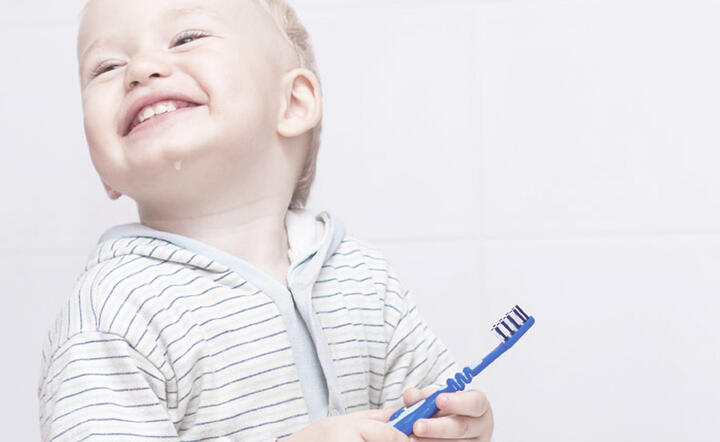The key to healthy teeth and gums is preventive check-ups at the dentist. The first appointment should take place between 6 and 12 months of age. Preventive check-ups are covered by the health insurance company twice a year.
Child care

Regular prevention can reveal possible incipient decay or other problems right at the beginning. Thanks to early diagnosis, you will save time and money. Don't delay your visit to the dentist – book a preventive check-up today!
What awaits you at the preventive examination?
The dentist will welcome the child, and subsequently explain to the parents how to properly care for the child's teeth. They will provide important information about a healthy oral cavity and also check the condition of the teeth. Preventive examinations are covered by the health insurance company twice a year. Don’t forget to care for the health of your children's oral cavity.
We emphasize a relaxed and friendly atmosphere, making sure that our children and parents feel relaxed. A visit to the dentist can take place without fear and pain, and we will show you how it’s made possible.
The content of the preventive examination for children is:
1. Getting acquainted with the surgery and staff - we will introduce the children, the dental chair and equipment. They have the opportunity to try out how a sucker or a drill works, for example (which we call a "dental shower"), we emphasize getting rid of the fear of treatment. Children are rewarded for each visit - they can choose a small gift.
2. Examination of the condition of deciduous and permanent teeth, control of fillings, evaluation of the correct development from a physiological point of view, control of orthodontic conditions.
3. Examination of the gums, suspension apparatus and other mucous membranes.
4. Control of dental hygiene, motivation and instruction of children and parents about the correct cleaning technique. It also includes a selection of suitable dental aids and nutritional advice.
5. At each preventive examination, X-rays are taken, the first bite-wing is taken from about 3-4 years, a panoramic OPG from 6 years (and then once every 2-3 years). We have the most modern devices with a minimum dose of radiation, there is no reason to worry about shooting. Thanks to X-rays, we prevent complications, pain and therefore bad experiences in children.
6. Preparation of an individual treatment plan for each child, the plan is explained in detail and clearly to the parents. Our goal is to treat every baby tooth and keep it in the mouth until its natural physiological exchange, so as not to reduce the quality of life of the child (early loss of baby teeth disrupts the natural development of bones and proper cutting of permanent teeth. orthodontic complications, the child has a problem with food, speech and also suffers mentally due to unsatisfactory aesthetics).
Hints and tips for healthy teeth
Your child will have healthy teeth if:
1. You do not transfer your decay-causing bacteria and periodontitis to them. Therefore, do not lick their spoon or pacifier, and do not kiss your child baby on the lips. The baby is born without these bacteria, and only receives them from someone who already has them in their mouth.
2. You book a dentist appointment as soon as possible, preferably when the child is cutting their first tooth, up to a limit of one year old.
3. You have regular check-ups so that the child gets accustomed it, developing a relationship to them. This can take place at an interval chosen by the dentist, according to decay and other problems.
4. An adult brushes their teeth for up to 12 years.
5. They have their teeth properly cleaned. The most important thing is evening cleaning before bed. After this, the child should not eat anything and drink only water and unsweetened tea. At night, saliva production decreases sharply, and if anything remains on the teeth, it significantly destroys them.
6. Despite the fact that many children will not want to, you brush their teeth in a regular fashion – the critical period is from one to three years.
7. They eat sweets only after meals.
8. You don’t scare the child about visiting the dentist. Talk to them about the appointment. The child will not be afraid unless you encourage them to be.